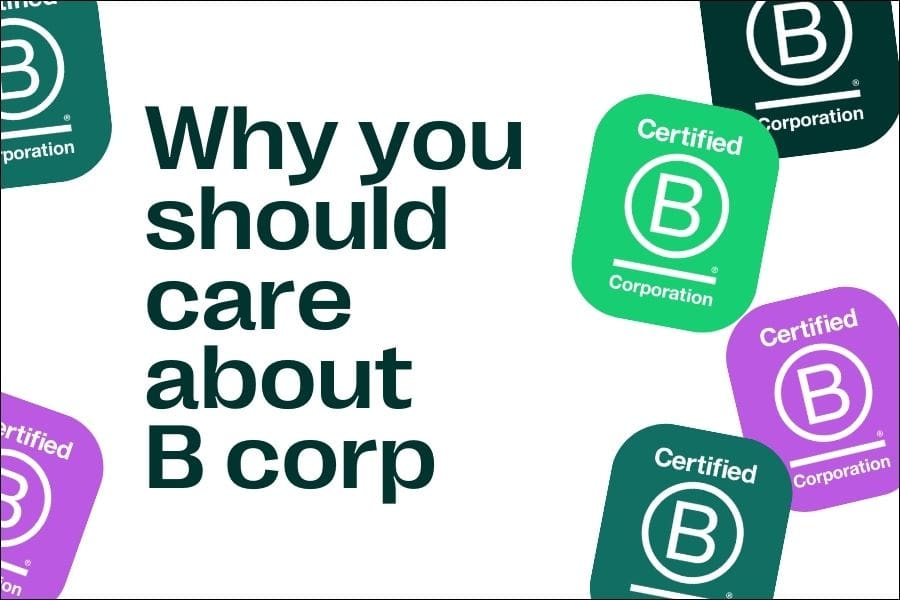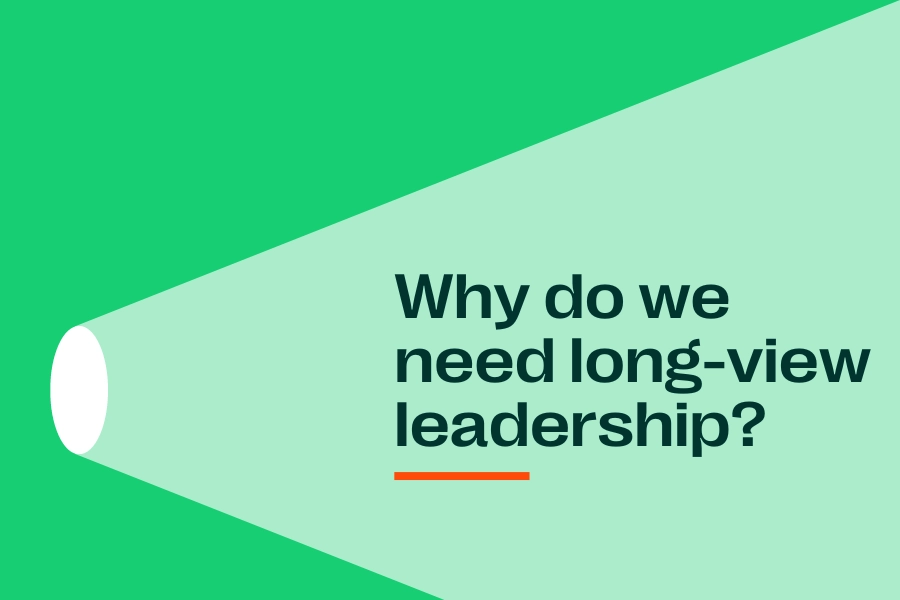Why you should care about B Corp
Fiona Stainer

Have we hit peak B Corp? You might be forgiven for thinking so. It’s now possible to dress head-to-toe in B Corp certified clothing, work out in a B Corp certified gym or yoga studio, shop for B Corp certified essentials from the B Corp aisle of a supermarket, and grab a B Corp certified coffee from a B Corp certified café on your way home. (Said home could even be designed by a B Corp certified architect, if you have enough money in your B Corp certified bank.)
Bottom line: B Corp is booming. The certification - awarded by non-profit B Lab to businesses on the basis of strict environmental, social and governance criteria - has been praised for providing a framework for all businesses to examine their impact on the planet and set targets to reduce it.
At the same time, B Lab has received its fair share of scrutiny regarding the stringency of its B Corp requirements, and the credentials of certain brands achieving certification. These mixed messages have understandably left some businesses asking: To B Corp or not to B Corp?
At Greenhouse Communications, we are firmly in the former camp. Read on to learn why we’re still flying the B Corp flag - and why we think other businesses should be too.
What does it mean to be a B Corp?
The B Corp process of certification measures a company’s entire social and environmental performance. Through a lengthy application, businesses are required to provide data across five impact areas: Governance, Workers, Community, Environment and Customers. Using this data, companies are awarded a score out of 200. A company achieves B Corp status if they score a minimum of 80 points on their impact assessment. But the road doesn’t end there. Businesses must re-certify every three years if they are to retain their status as a B Corp. At the last count, there were almost 8,000 certified B Corps employing over 700,000 people in 93 countries around the world.
Thanks to this exponential growth, certified B Corps now benefit from association with a globally recognised brand, enabling them to shout about their commitment to positive environmental and social impact. This in turn can benefit the bottom line: in 2023 Deloitte found that a quarter of consumers are prepared to pay more to protect biodiversity, purchase sustainable products, or support businesses that are committed to human rights and ethical working practices. B Corp certification can also give you the edge as an employer, with three quarters of graduates saying that they would be more likely to apply to a company with strong sustainable practices.
Why is there a backlash against B Corp?
As the noise around B Corp has increased, so too have the voices of its detractors. Criticisms of B Corp certification range from questions around the validity of self-reported data, through to claims that the scoring system enables greenwashing by companies who might emphasise progress in one impact area while sweeping less ethical practices under the carpet. When Nespresso achieved certification in 2022, a group of certified B Corps responded in an open letter to B Lab, highlighting Nespresso’s questionable human rights record, as well as the levels of waste created by the brand’s coffee capsules. In the same year, controversial beer brand BrewDog was stripped of its B Corp certification following employee claims of a ‘culture of fear’ in the workplace. And in 2023, more than 30 creative agencies signed an open letter demanding more stringent criteria for B Corp certified advertising and PR firms that work with fossil fuel and high polluter clients. This came in the wake of Havas - a parent company to several B Corps - becoming the main media agency for Shell.
In response to the questions around B Corp standards, B Lab has been holding a series of public consultations with the aim to ‘improve the impactfulness of the standards, improve clarity around what it means to be a leading business, and demonstrate responsiveness to what we’ve heard from various stakeholders over the past few years.’ The new standards - which will include the requirement for organisations to demonstrate progress via an increase in overall score at recertification - are due to come into effect next year.
The backlash following Nespresso’s certification encapsulates a tension that sits at the centre of the B Corp movement: should certification be reserved for SMEs committed to putting impact at the heart of all of their operations, or is there room too for large multinationals who may be further behind in their sustainability journeys, but who are positioned to bring about the greatest change? We think there is space for both; if we are to combat the climate and biodiversity crises and build a better future for people and planet, we need everyone on board. As a B Corp, we have found that one of the biggest benefits of certification is the knowledge sharing that occurs within the B Corp community. We work together to make each other better.
So does B Corp mean anything?
We say yes, absolutely. The scoring system for B Corps means there is always room for improvement - achieving B Corp status is only the start of the journey. Greenhouse Communications is a living example of this: achieving our initial B Corp score of 88.8 in 2017, we pushed this up to 95.9 when we recertified for the first time in 2020. In 2023 we hit the big three figures, with a score of 121.8. This puts us in the top 5% of all UK B Corps by overall impact score. And we won’t stop there - why would we when there are still 78.2 points between us and the top spot?!
How are B Corps scored?
How do you know if a business is truly living its B Corp values? If you want to check if your favourite B Corp brand is committed to progress across the five impact areas, you can use B Lab’s Find a B Corp function to delve into the data yourself. You can check the individual scores for each area, as well as see a company’s progression every three years since it first certified.
Is B Corp worth it?
If you’re considering whether to apply for B Corp status, as a B Corp agency we wholeheartedly endorse going through the certification process. Not only does it help you benchmark where you currently stand across all five impact areas, it also helps you to put in place action plans to move you up the scoreboard at each recertification. By certifying as a B Corp you’ll also gain access to an inspiring and knowledgeable community of fellow B Corps committed to sharing ideas and expertise. We’ve worked with B Corps across multiple sectors, including Riverford, Triodos, Vivobarefoot, Toast Brewing, Vestiaire Collective, Ella’s Kitchen and Cafédirect. Many of our regular creative partners are B Corps too, including Rubber Republic and Hiyield.
Curious to learn more? Head to B Lab for everything you need to know about certification. This month is B Corp Month, so follow the #BCorpMonth hashtag on socials to hear from certified businesses about what being a B Corp means to them.
Are you an impact-focused business looking for comms support? We’d love to hear from you.


